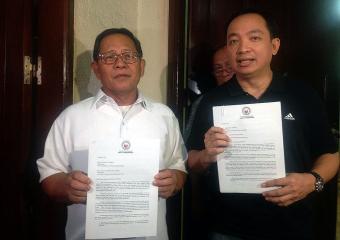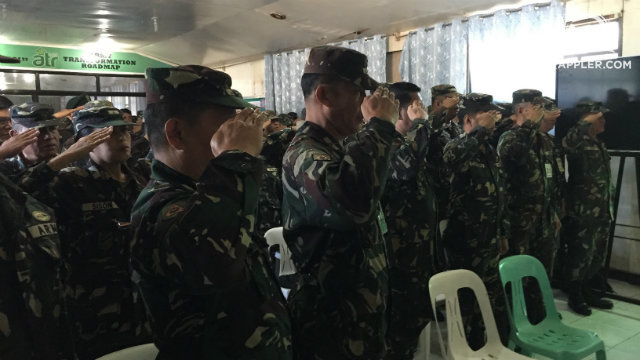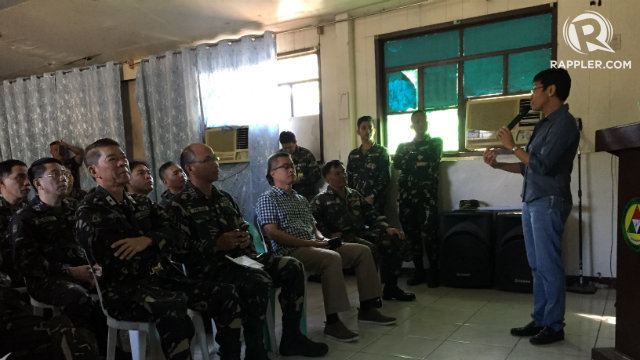Editorial in the Philippine Daily Inquirer (Mar 31): Editorial -- Infrastructure is key
MINDANAO is rich in natural resources yet businesses generally avoid investing in many parts of the island, for reasons of security. No wonder the conflict-affected provinces in Mindanao are among the poorest in the country, many with minimal infrastructure and very few private-sector investment.
The connection between conflict and poverty is nowhere more evident than in the 2012-2013 Philippine Human Development Report. Sulu had the lowest human development index (HDI) of 0.216, followed by Maguindanao, 0.3; Tawi-Tawi, 0.31; Zamboanga, 0.353; Agusan del Sur, 0.354; Davao Oriental, 0.356; Sarangani, 0.371; Zamboanga del Norte, 0.384; and Lanao del Sur, 0.416. The common denominator of these provinces is conflict. The report noted that Sulu’s HDI was almost as bad as those of the poorest African countries.
The HDI measures human development by averaging three basic measurements: health, education and standard of living. Ideally, the HDI should be close to 1. In comparison, provinces in Luzon dominated the top performing provinces in the report: Benguet, 0.849; Batanes, 0.789; Rizal, 0.734; Cavite, 0.709; Bulacan, 0.699; Bataan, 0.698; Laguna, 0.695; Nueva Vizcaya, 0.678, and Ilocos Norte, 0.641. The HDI index in Metro Manila was 0.634.
Prof. Toby Melissa C. Monsod, the coordinator of the 2012/2013 Philippine Human Development Report, observed that aside from the conflict in Mindanao, the poor HDI rankings of provinces in the South had been due to a failure to have “connective infrastructure.” She cited as proof the overlapping public investments, many small projects with little or no development significance dotting towns and cities, such as waiting sheds, entrance arches and multipurpose pavements, resulting in “duplicative infrastructure and programs in disregard of scale, synergy and the conscious integration of larger markets.”
It is not that the government has no plan for developing Mindanao. In fact, there is a roadmap for Mindanao that was based on the Roadmap for Transport Infrastructure Development for Metro Manila and Surrounding Areas, which the Aquino administration completed with help from the Japan International Cooperation Agency. The roadmap includes short-, medium- and long-term strategies and investment programs for the development of the transport infrastructure sector to serve as a guide in the development of policies, prioritization and design of transport programs and projects, according to Economic Planning Secretary Arsenio Balisacan.
Perhaps the problem is in the implementation, which has been taking too long for many public infrastructure projects due mainly to funding problems. A case in point was the recently relaunched extension of the South Luzon Expressway to the province of Quezon, which was promised by the deposed strongman Ferdinand Marcos, approved during the term of President Fidel Ramos, and broke ground during the administration of President Gloria Arroyo.
Last week, the head of the country’s biggest conglomerate reiterated that building more infrastructure in Mindanao was the key to finding a long-term solution to its peace and order issues. San Miguel Corp. president Ramon Ang recalled an early investment he made in a cement plant in Batangas, which suffered from attacks by the New People’s Army in the early 1990s. Although Batangas, Cavite, Laguna and Quezon are progressive provinces today, Ang said these were considered “no man’s land” at that time.
The government solved that, not by signing a peace treaty, but by building more roads, Ang said. The same can be true for Mindanao, he said. If the government and the private sector develop the area, then the economic status and the life of the people there would improve. “If you look at them now, [you will see that] they are having a hard time because infrastructure is lacking. The government should bid out ports, airports and other infrastructure in Mindanao, and the private sector should be the one to construct them,” he said.
It is difficult to imagine why much of Mindanao is in such a sorry economic state. It has the resources that can easily draw investments, particularly in agriculture and tourism. All previous studies point to the lack of basic
infrastructure—schools, hospitals, roads, bridges, seaports, airports—and of electricity as the main issue. If the government can’t do these due to budgetary constraints, then it should tap the private sector. There is this mechanism called the public-private partnership, which, sadly, has been moving much too slowly.
http://opinion.inquirer.net/83769/infrastructure-is-key
Valte said the details of the summit would be up to the convenors who would gather other responsible and respected leaders to spearhead the event – how it would be executed and the number of days it would be held.
During last Friday’s commemoration of the 1st anniversary of the Comprehensive Agreement on the Bangsamoro (CAB) in Manila, President Aquino stood firm in his belief that the peace process must be pursued and that the proposed Bangsamoro Basic Law (BBL) must be passed or the nation would have “to count body bags later on” because of war in Mindanao.
The peace council comprises “citizen leaders known for their wisdom and integrity” as independent convenors that included Manila Archbishop Luis Antonio Cardinal Tagle, former Supreme Court Chief Justice Hilario Davide Jr., businessman Jaime Augusto Zobel de Ayala, former ambassador and peace advocate Howard Dee and Rohaniza Sumndad-Usman, a youth leader and founder of Teach Peace Build Peace Movement, a non-profit organization with a mission of making every youth a peace builder.
Aquino said the independent convenors would dissect the proposed law in a calm and reasonable manner that would not incite anger and hopelessness.
“This way, the BBL can be improved. They will write a report that will be made public, so that everyone may be informed, and so that more of our countrymen may understand the matter. In this manner, we will be able to advance a reasonable decision as regards the Bangsamoro Basic Law,” the President said.
Valte said the inputs from the summit would not be useless even as Congress deliberated on the proposed BBL because it would collect different positions or opinions from all sectors of society.
“This is an issue that everyone needs to understand. It is an issue that everyone needs to be able to dissect in a rational manner, so why oppose a space that could help the public understand and improve the draft BBL?” Valte argued.
Valte said the convenors would not in any way usurp the work of the lawmakers and there was nothing wrong in involving the people in the peace process.
“It’s Congress that has the power to go over the law and then to make refinements to it, but that does not exclude the people because Congress should primarily be listening to the people, and we do not see why the people should be excluded out of discussions that concern matters that affect them as well,” Valte said.
“Think of this as an additional discussion. This will not replace the discussions in Congress. It will not replace the system that the BBL has to go through to make it a law. This is just an additional space wherein stakeholders, community leaders and other citizens can take part in rational discussions about the BBL,” she said.
http://www.luwaran.com/index.php/welcome/item/819-every-filipino-needs-to-understand-the-gph-milf-peace-negotiation-dp-spokesperson-valte





